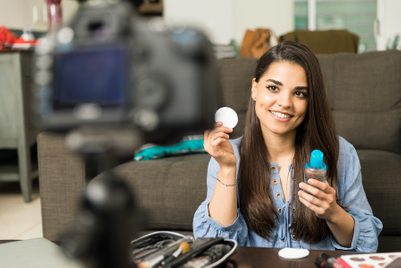
The Spikes Asia panel, moderated by Jean Lin, chief executive officer of Isobar Asia-Pacific and founder of wwwins Isobar Greater China, featured Dwayne Serjeant, Isobar's regional practice leader for user experience, as well as two brand marketers: Haresh Koobchandani, COO of Microsoft Indonesia and Ajay Mohan, director of partner marketing and digital marketing, consumer marketing and sales with Intel Asia-Pacific.
The panelists dispensed with the planned topic rather rapidly, mainly agreeing that technology is a tool that serves as a great acclerator of creativity, as long as it's employed in the service of marketing objectives and not as an end in itself.
"I fundamentally believe technology is not a hindrance," Khoobchandani said. "But if you use it for the sake of using it, it is a hindrance."
Mohan made light of technology's ability to interfere with creativity on the personal level when he claimed to suffer from "GIADD" which he said stands for Google-inspired attention deficit disorder. The condition interferes with the quiet ideation and introspection necessary for true creativity, he said. He nonetheless concluded, as one would expect of an Intel man, that technology is a powerful catalyst for speeding up creativity and sharing the results.
When Lin asked how agencies are doing with harnessing technology for brands, the marketers spoke plainly.
"Things are evolving so fast that I don't think about technology," Khoobchandani said. "I think about what effects my consumers."
He went on to decry digital agencies who—surprise—advocate digital solutions, and described what he'd like to see more of: "At some point the conversation has to be about me, what I need, and where I need to go," he said. "Having agencies come in to have that discussion and say, 'Hey, let's look at what you need, and then let's build a plan to achieve that.'"
Mohan took a soomewhat more sanguine view. "As clients and agencies, we are all guiilty to a certain degree of finding the next shiny object," he said. "There is always that quest for doing the next shiny thing, and sometimes we forget, both as clients and as partners, we forget that technology has to serve a purpose."
Another issue that brands and agencies need to address, and which technology can help with, is expanding reach, Mohar said.
"You name it," he said, "the next billion of whatever you sell will be sold in this part of the world. I don't think we've used technology well enough to reach out to those peple, and ideas that would get us those people--any clients would be all for that."
The panelists also spent some time, at Lin's behest, naming the next big technology innovations that the industry will need to come to grips with.
Serjeant spoke about the "democratisation of product development" enabled by 3D fabrication tools, as well as the possibilities of haptic feedback systems that would allow users to feel textures or reactions as they interact with a device. Khoobchandani mentioned the ageing population, asking whether technology in its current forms is relevant to older consumers and calling for more development in this area.



.jpg&h=334&w=500&q=100&v=20250320&c=1)

.jpg&h=334&w=500&q=100&v=20250320&c=1)
.jpg&h=334&w=500&q=100&v=20250320&c=1)
.jpeg&h=334&w=500&q=100&v=20250320&c=1)

.jpg&h=334&w=500&q=100&v=20250320&c=1)
.jpg&h=334&w=500&q=100&v=20250320&c=1)

.jpg&h=268&w=401&q=100&v=20250320&c=1)

+(1).jpg&h=268&w=401&q=100&v=20250320&c=1)


.jpg&h=268&w=401&q=100&v=20250320&c=1)

.png&h=268&w=401&q=100&v=20250320&c=1)